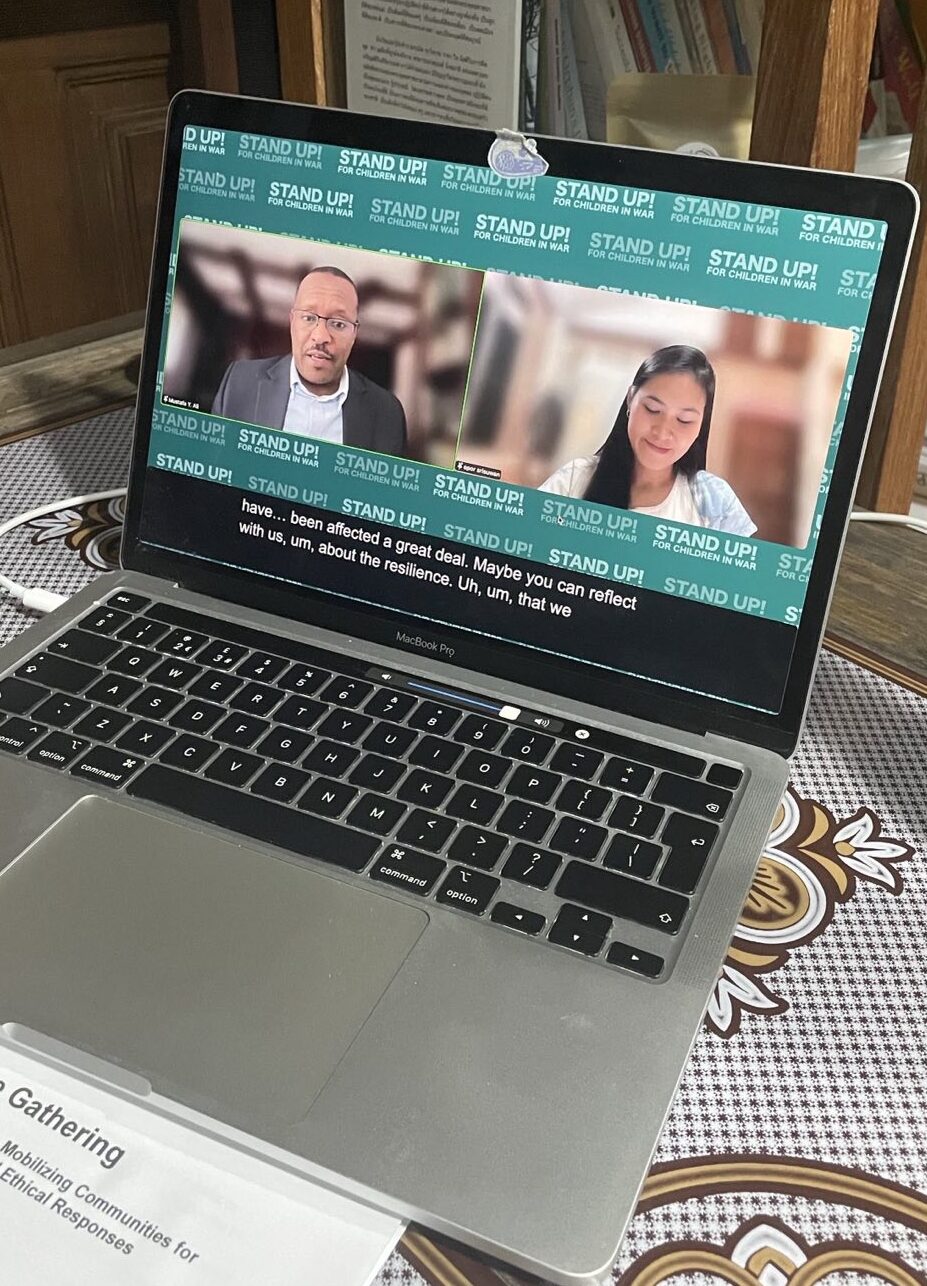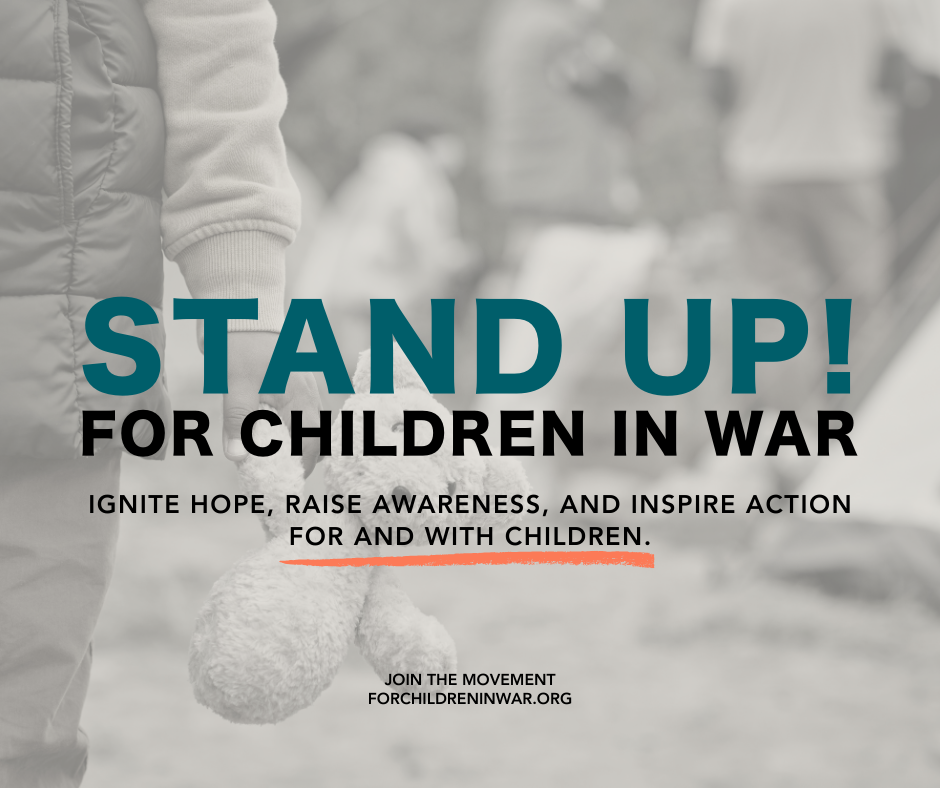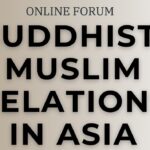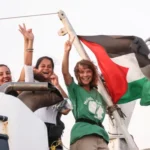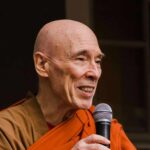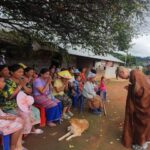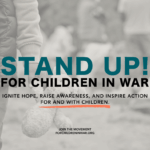On 24th September 2025, INEB joined organisations and individuals from around the world at an online event that aimed to grow a collective consciousness to ignite hope, raise awareness, and inspire action to protect children from war. INEBs representative for Child Protection, Opor Srisuwan spoke on resilience while other speakers included moving testimonials from children in Palestine. INEB’s Little Buddha Child Protection project is working with novices who have escaped civil war in Myanmar.
The event was held on the International Day of Peace to draw attention the vast numbers of youths trapped in armed conflicts across the globe (currently 473 million children live in conflict zones).
This is the full statement from https://www.forchildreninwar.org/
On International Day of Peace
STAND UP FOR CHILDREN IN WAR!
As religious communities, international organizations, civil society, and people of goodwill, we stand together to raise an urgent alarm about the suffering of children in war, to reaffirm the sanctity and value of their lives, to uphold their human dignity, and to demand protection for these most innocent, vulnerable, and precious members of every community. The continued violations of international humanitarian law and human rights law are not isolated incidents; they reflect a broader and alarming erosion of the shared moral norms that faith communities long advocated for and helped inspire.
Across traditions, sacred texts, prayers, and practices remind us that the protection of the vulnerable and the pursuit of peace are shared ethical imperatives. Long before humanitarian and human rights law were codified, faith and moral values called us to be compassionate, to protect the vulnerable, restore relationships, uphold human dignity, and promote the right to life.
Childhood is a journey of growth, identity, and belonging. When a child is forced to flee, to bury a parent, or to endure hunger or injury, that journey is broken. Beyond the immediate suffering lie often overlooked and yet devastating consequences: malnutrition and the weaponization of food; collapsing health systems, spread of disease and disrupted immunization; toxic stress and other mental-health problems; interrupted learning, stunted development and early marriage; and the fragmentation of communities that dissolves trust and solidarity, and imperils our common future: the future of our children.
Today, grave and proliferating breaches of international humanitarian law and human rights law — including the direct targeting of children, their schools, the hospitals where they are cared for, and the shelters where they hope to find refuge — are deeply alarming and risk becoming normalized.
This MUST end. We cannot be silent. Change is possible, rooted in the moral teachings of our faiths and the universal legal principles meant to secure justice and peace. We believe that international organizations, local communities, and children themselves can be agents of healing and transformation. We believe in the power of hope, solidarity, awareness, and consciousness – acknowledging both the call to raise awareness in society and the call to speak and act from our own conscience – as guides for collective responsibility and action. Together, we can prevent violence, raise awareness about its devastating impact, and foster spaces for dialogue and mutual understanding that can help change the course of history.
For the sake of our children, we must act.
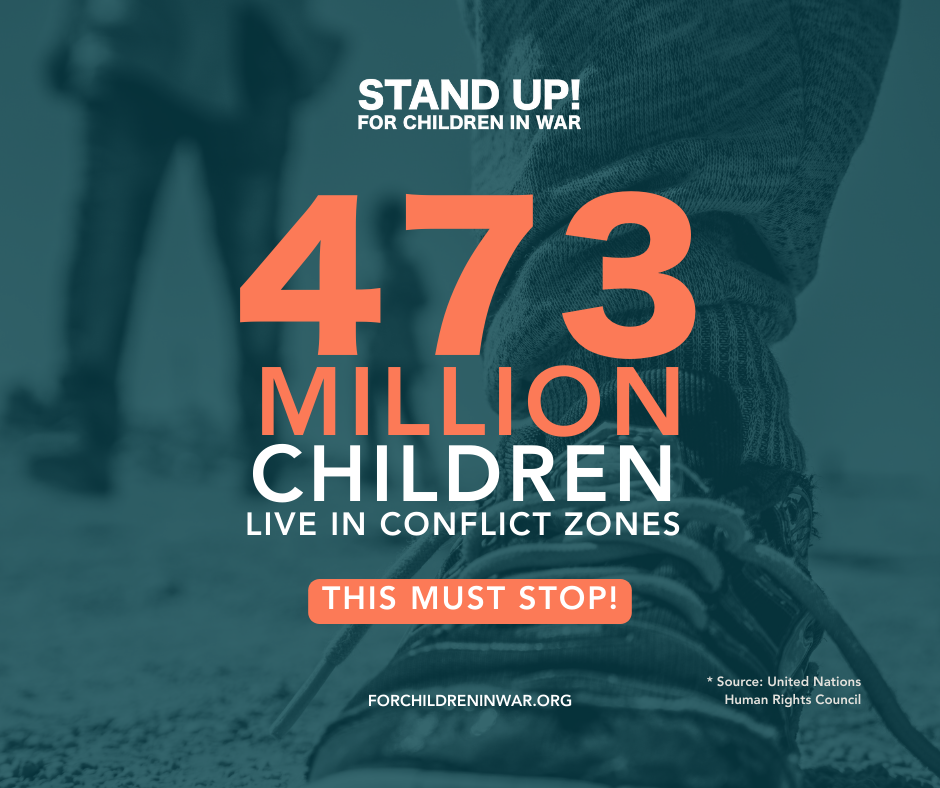
Therefore, on the International Day of Peace 2025
We jointly call upon States and political leaders to:
- Honour legal obligations and uphold International Humanitarian Law and International Human Rights Law that protect us all from violence and abuse, especially against children, in times of war.
- Advocate for an immediate and unconditional ceasefire in all conflict zones, urging all parties to prioritize dialogue and peaceful resolution, and to take urgent steps toward de-escalation to protect children and civilians.
- Protect children from harm and all forms of violence, in compliance with Article 38 of the Convention on the Rights of the Child, which obliges States to take all feasible measures to protect and care for children affected by armed conflict. This includes preventing the collapse of public health systems and ensuring safe and unimpeded delivery of food, clean water, medical assistance, and mental health and psychosocial support.
- Respect and protect education and health facilities; refrain from their use for military purposes; enable safe, sustained learning for displaced and refugee children.
- Support transparent monitoring, reporting, and accountability mechanisms for grave violations against children, end impunity, and promote justice, dialogue, and reconciliation through time-bound action plans in line with international frameworks.
- Address the diverse root causes of violent conflict, including but not limited to those linked to resource scarcity, displacement, global warming, and other social, political, and economic factors.
We also call upon religious leaders and faith communities to:
- Raise consciousness and challenge the normalization of such unconscionable violations against children. Let your churches, temples, mosques, synagogues, and sacred spaces resound with the call for peace.
- Collaborate with other faith communities and international and civil society organizations to provide holistic and coordinated responses for children and families affected by war, grounded in the do-no-harm principles.
- Create safe spaces for children to speak and be heard. Let their lived realities guide our common action.
- Speak with one voice against violence, dehumanization, and hate, and actively engage congregations and governments in calls for an end to hostilities and for accountability.
- Advocate for the restoration of a moral social contract; one that centres empathy, justice, and the inherent dignity of every child.
We choose conscience over indifference, hope over despair, and ethical action over silence.
We STAND UP for children in war
